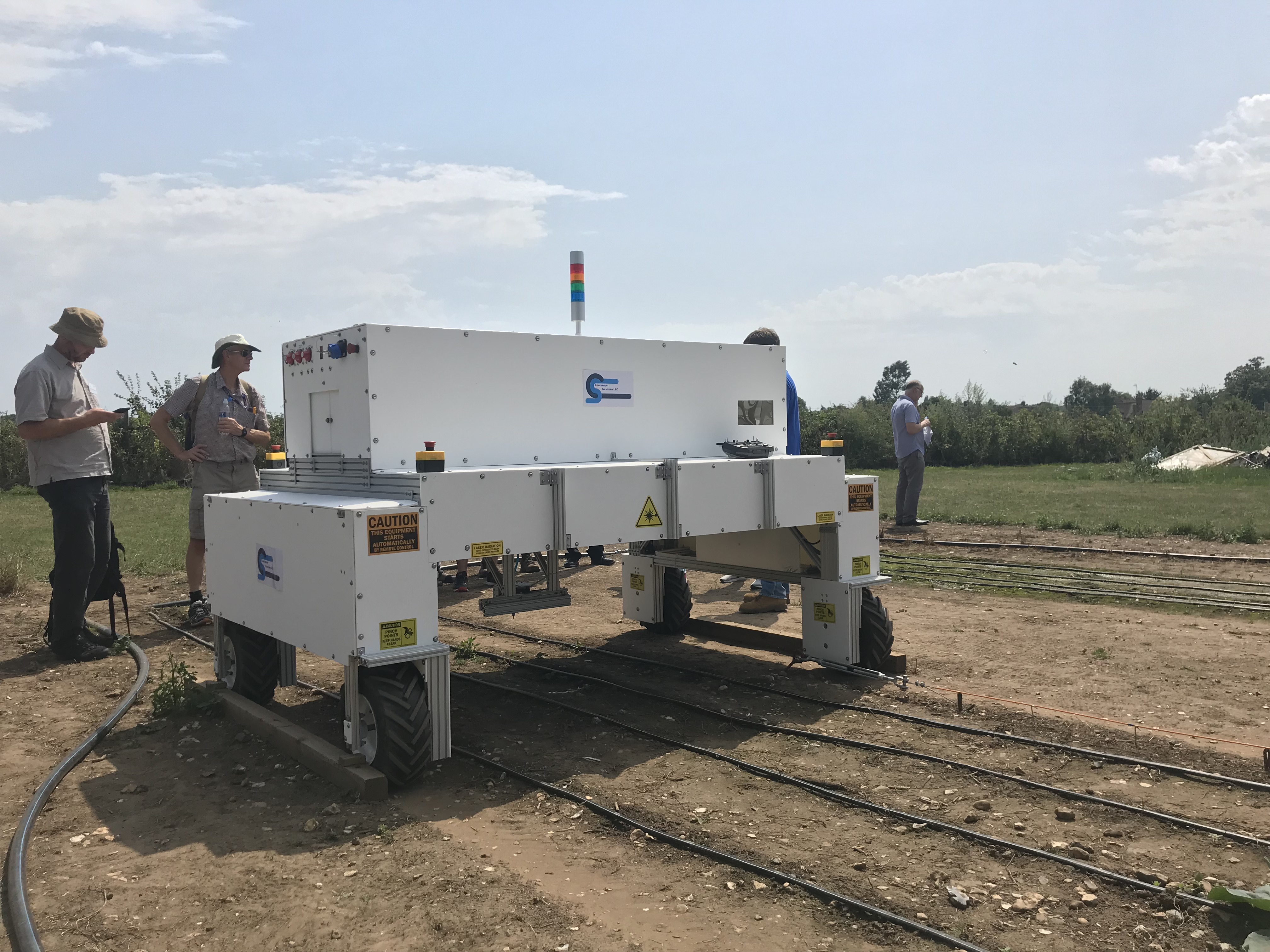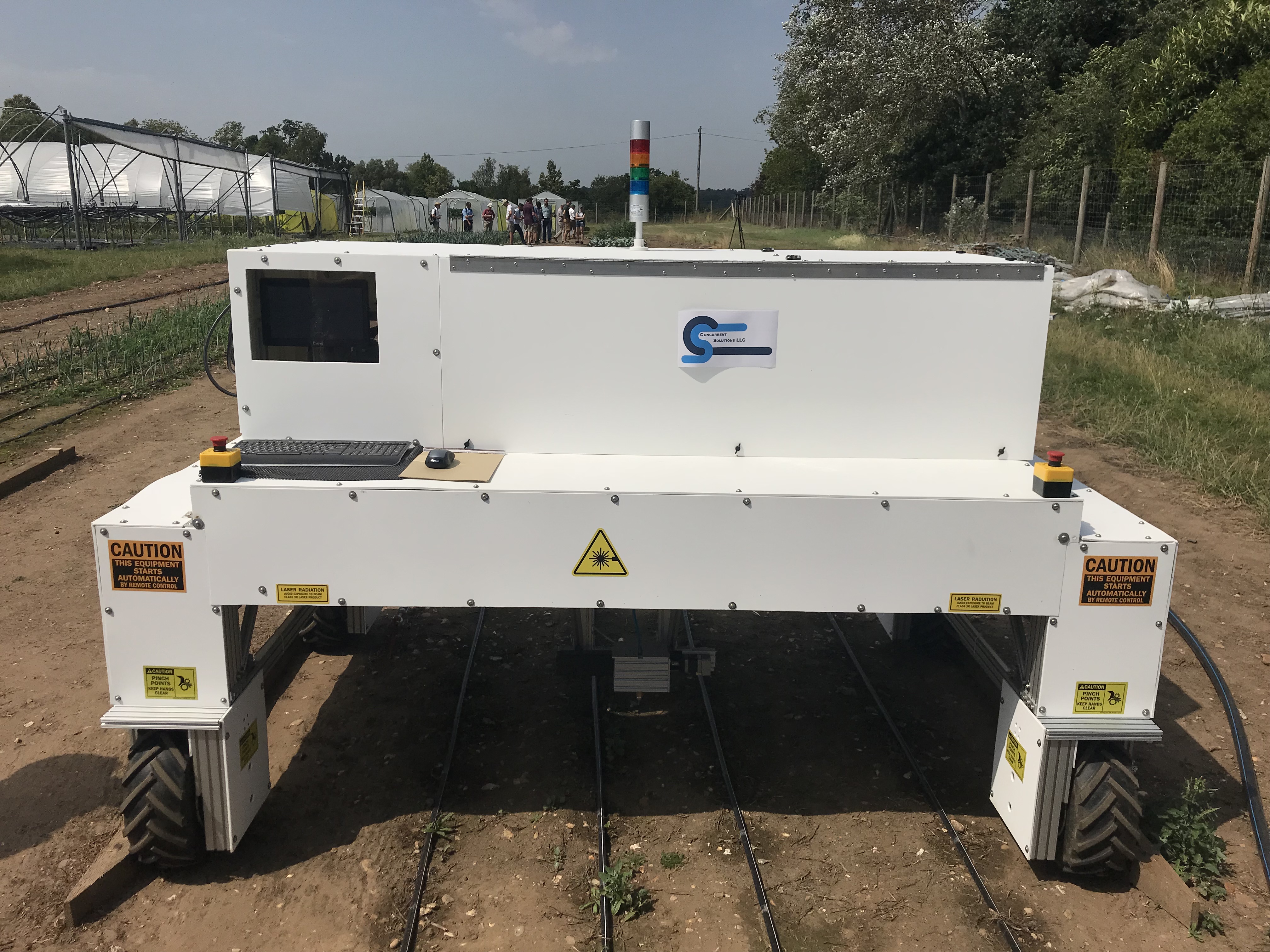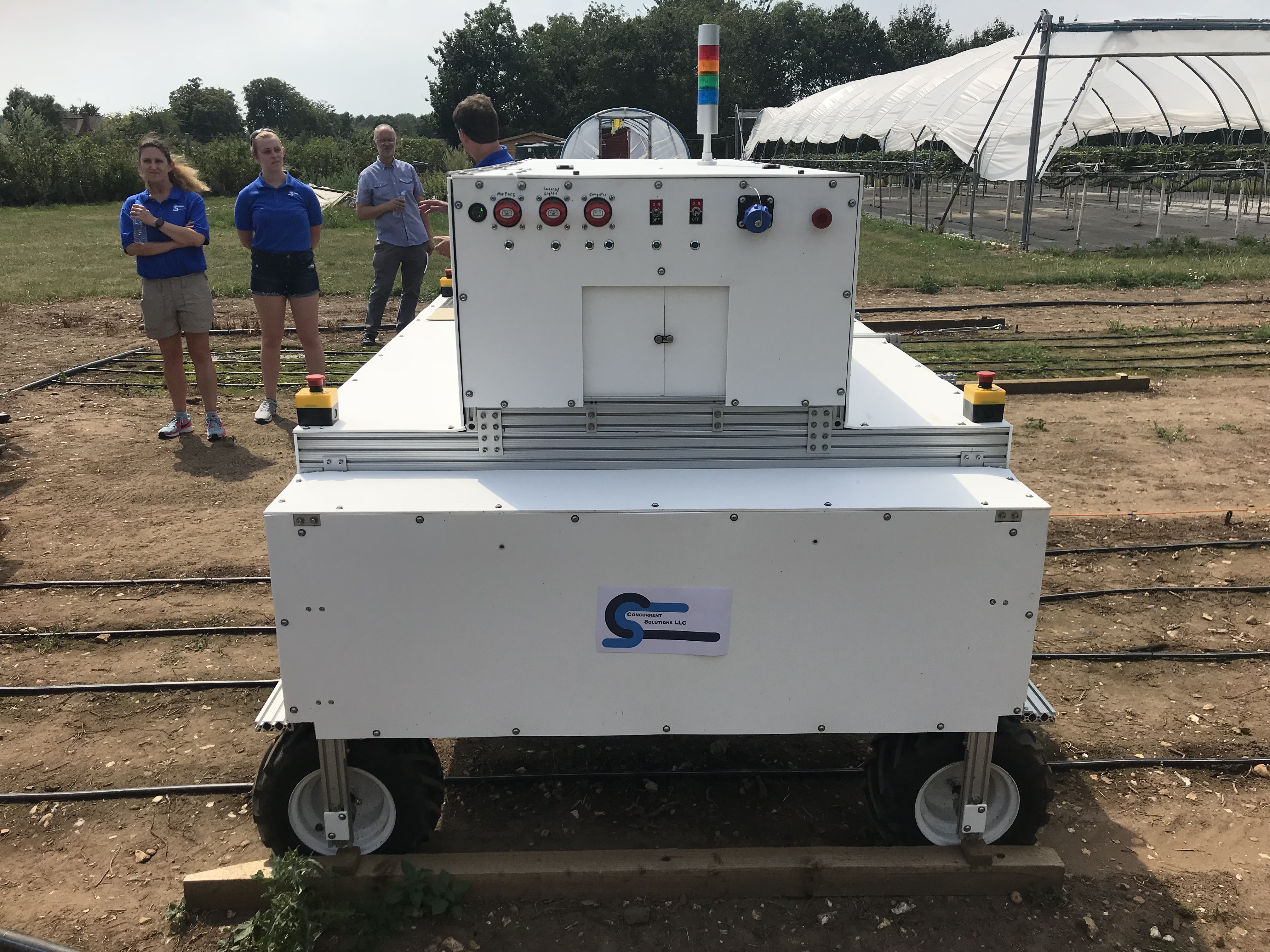Please click here to access the main AHDB website and other sectors.
eyeSpot – a glimpse into the future of weed control
Tuesday, 13 August 2019
An exciting technological development in precision field vegetable production was demonstrated at Reading University’s Sonning Farm on 25th July.
The new technology – eyeSpot – seeks to make a step-change in weed control for growers by both reducing herbicide usage by up to 95% and by working autonomously, eliminating the need for a sprayer operator.
Using a machine vision system to distinguish target weeds from the crop, eyeSpot assesses the growth stage of the target weed, evaluates the necessary herbicide dose and then uses a cutting-edge spot ejector to accurately apply herbicide droplets precisely to individual leaves.
eyeSpot key researcher, Nikolas Koukiasas from the University of Reading stated:
“eyeSpot represents a paradigm swift to weed control by accurately targeting leaf-specific droplet applications. Preliminary results of manual droplet applications showed excellent weed control and a 95% reduction of herbicide use in cabbages, and 74% in leeks”
The main drivers for eyeSpot are the continuing reduction of herbicide chemistry available to growers, together with the environmental pressure to reduce impacts of herbicide use. By using individually targeted droplets, eyeSpot practically eliminates spray drift and dramatically reduces the likelihood of run-off to soil and non-target organisms, including the crop.
Through attaining these objectives, eyeSpot delivers a step-change in weed technology, achieving selective weed control by engineering rather than chemistry.
In addition to reducing herbicide and labour inputs, eyeSpot can also benefit the environment by reducing the need for mechanical weed control, thereby using less fuel and reducing irrigation needs through lower soil moisture losses. Furthermore, reducing cultivation also means that fewer weed seeds will be stimulated to germinate.
In the longer-term, imagery from weed management could also be used for crop management, with the observation of growth rates enabling accurate scheduling of operations, detection of crop stress and early yield estimates.
The project is part-funded by AHDB and is being developed by experts at the University of Reading, Precision Farming Robotics Ltd, Concurrent Solutions and Knight Farm Machinery Ltd.




